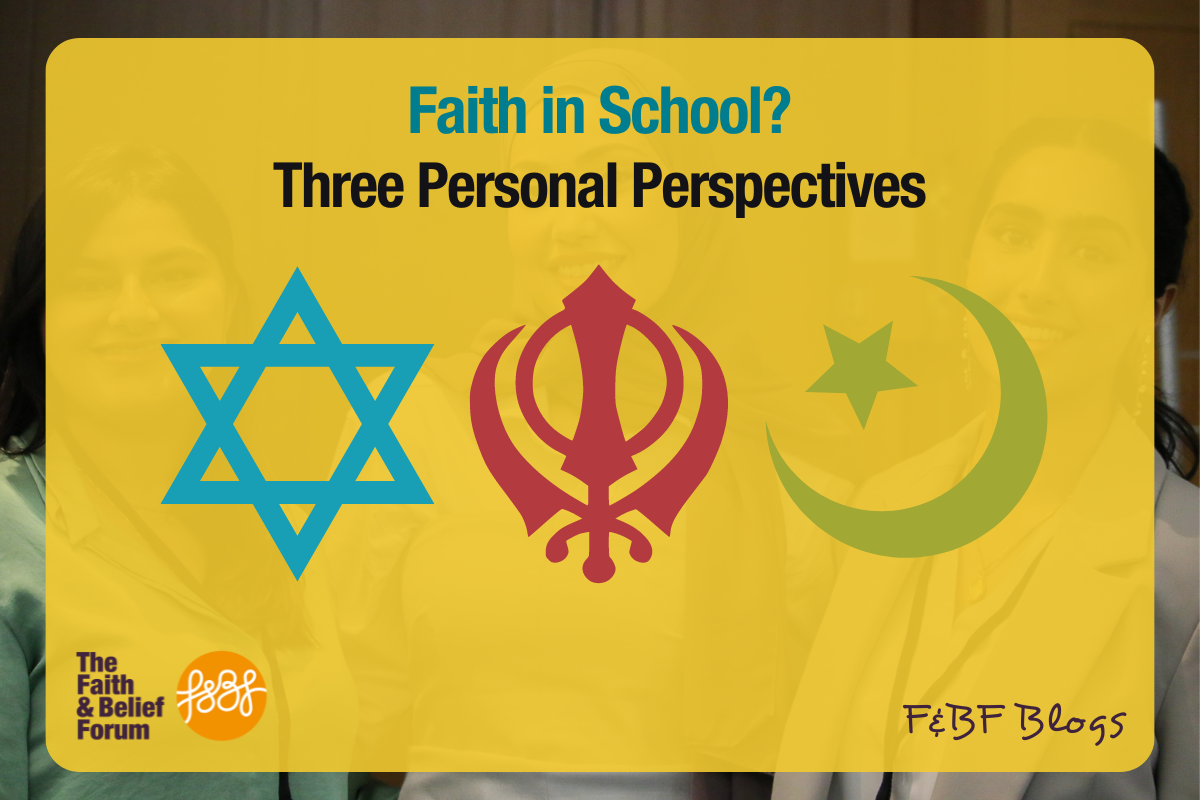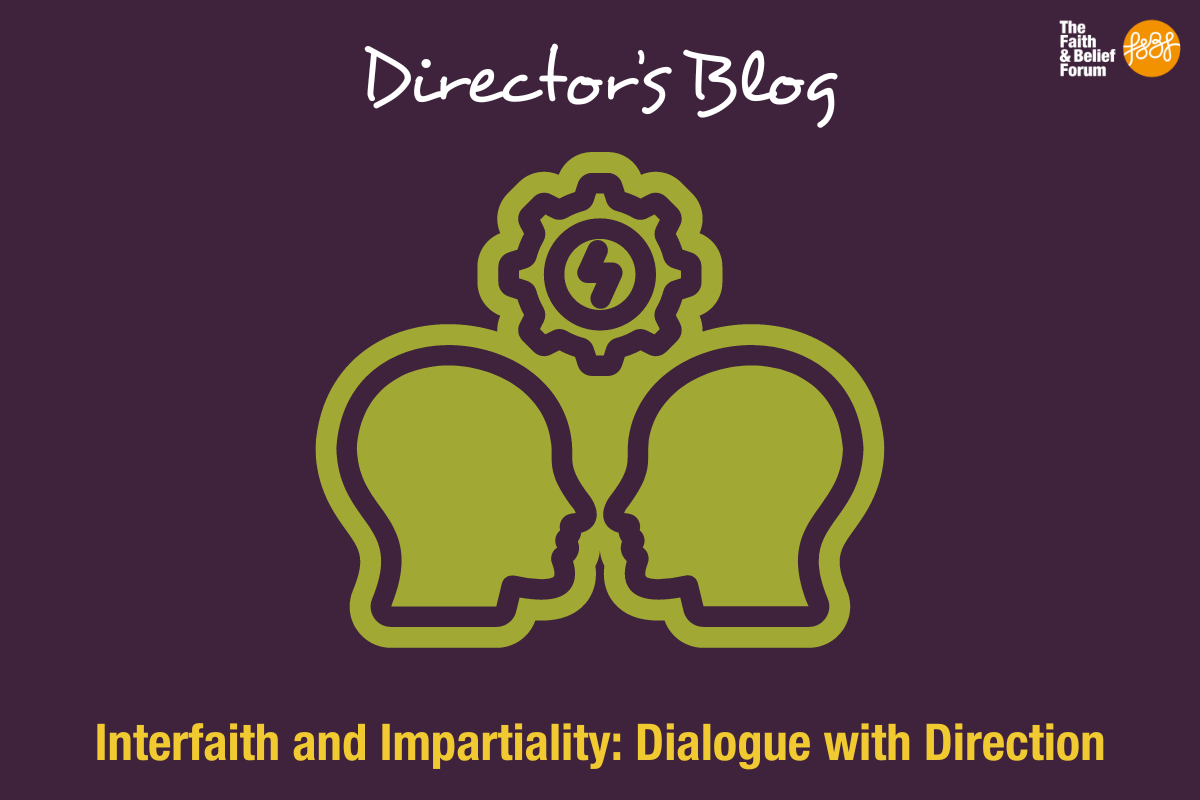
Faith in Schools?
08 / 05 / 24
Menu

03 / 05 / 24
Interculturalism and Interfaith in an age of broken relationships
Will we be remembered as peacebuilders?
Professor Mike Hardy, Chair of Trustees
The United Nations General Assembly designated 7 April as the International Day of Reflection on the 1994 Genocide against the Tutsi in Rwanda. It also recalls that during 1994 genocide against the Tutsi, Hutu and others who opposed it were also killed.
Genocide Memorial Day marks the beginning of the national mourning period that lasts until July 4th and Liberation Day, known locally as Kwibohora, a day set aside to remember the day when the Rwanda Patriotic Front defeated the previous Habyarimana regime and the Rwandan Armed Forces and brought to an end the Genocide against the Tutsi.
Earlier in the year, during a fleeting visit to the United States, I watched many mark the annual celebration of the work and legacy of Martin Luther King Jr., one of the few peacebuilders elevated to a national day of recognition in the US. Interestingly this recognition is too often reserved for great battles or military heroes. While we generally equate security – both in the broadest sense of protecting the nation state and in the more parochial sense of protecting communities and neighbourhoods – with armed forces like the police or the military, the work of peacebuilding is grounded in helping to create security by changing the things that lead to instability and violence.
In a few months time, on 28th August, some will remember also the 1963 march on Washington for jobs and freedom in which MLK Jr. participated and famously spoke.
Peace and peacefulness are terms that leave much to the imagination, and are frequently mistaken for kinds of dreamy and intangible wistfulness, Importantly, the art and practice of peacebuilding is a richly nuanced vocation that calls upon tools and methods steeped in a deep understanding of human nature, intergroup relationships, and community dynamics. Thought-leadership here is hugely important, and gives an unforgiving sense and purpose to our work in the academy. Peacebuilding requires strong ideas as well as strong practice. It requires patience, empathy, and care, as it navigates around the worst of people’s pain and trauma, the depths of their fears and the hard edges of their anger.
In the era of the United Nations’ New Agenda for Peace, peacebuilding must be committed to the idea that if people can work their way from broken relationships to less broken ones, the world will be safer for all of us, including generations that are yet to be born. While force may be deemed necessary at times to prevent immediate harm, coercion does not change minds, and only promises to sustain cycles of resentfulness and vengeance that lead to more violence.
For what will we be remembered?
Around the globe, more people are dying in fighting, displaced from their homes or in need of life-saving aid than for decades; on too many battlefields, peacebuilding is non-existing or going nowhere; in reality diplomacy has become the game of managing fall-out, and so often these days, when the fighting has ended, the quiet, certainly not always peacefulness for all, owes less to dealmaking-dialogue than to battlefield victory.
Our real pursuit of peacefulness and of peacebuilding itself must seek an alternative – to change the way that people understand one another, to increase mutual respect and a future built on institutions and collaborations that better serve all people, while acknowledging and moving forward from a past marred by injustice and bloodshed. This is the territory of intercultural dialogue, of interfaith and intersectionality.
Peacebuilding, and the peacefulness it seeks, is complex and nuanced, often highly unsatisfying to those who seek swift retribution for harm they have suffered or witnessed. But the outcomes of peacebuilding are meant to be more permanent and sustainable than revenge or simple punishment. It is a more labour-intensive path with the promise of more durable rewards that are more widely shared.
This is why peacebuilding and the real peacefulness that might follow have been uplifted and celebrated in many spiritual traditions.
While assertive conflict and authoritarian coercion seem to be on the rise in both international affairs and intergroup dynamics, we have to take responsibility to continue, relentlessly, to explore the principles, challenges, and methods within peacebuilding practice. Our goal must continue to make sense, to unpack, demystify, and make all these more accessible for everyday use by individuals and communities, so that our social norms might find a better grounding in resilience, acceptance, and compromise.
This is surely the time for investing in such explorations, investing in understanding and in the practice of waging peace
Let’s be remembered for at least trying.
Mike Hardy
Centre for Peace and Security at Coventry University
Chair, International Leadership Association
Chair of Trustees, The Faith and Belief Forum
6th World Forum for Intercultural Dialogue, the Baku Process, 01-03 May 2024

08 / 05 / 24

16 / 02 / 24

15 / 02 / 24